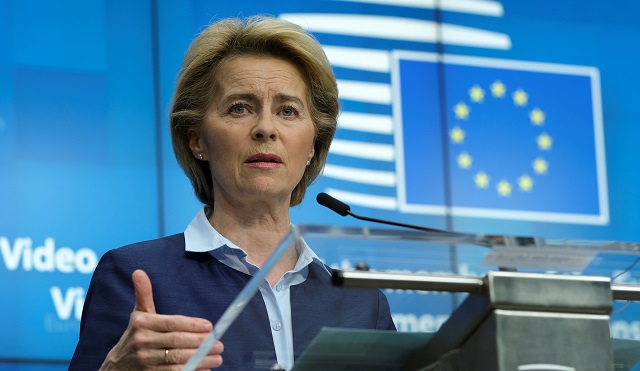Russia using gas exports for leverage on Ukraine dispute - EU chief

The European Union is in discussions with the US and other potential suppliers about securing more gas deliveries to Europe in the face of “growing evidence” Russia is using exports as political leverage, said EU Commission President Ursula von der Leyen.
Speaking at a conference, she said Russian state-owned energy company Gazprom was exporting historically low supplies of gas to the EU despite “peak prices and exuberant demand” in whet she called “very strange business behaviour”.
Von der Leyen added that Gazprom had “no interest at the moment in increasing supplies to us”.
“We need to become independent of this and work consistently with reliable gas suppliers.”
Europe's gas storage is around 10% less than usual for the winter months. Gazprom insists it is meeting contractual obligations, but EU officials and the International Energy Agency say it is contributing to an undersupply over the standoff.
Meanwhile, the EU was building a partnership for energy security with the US “which is primarily about more LNG gas supplies”, von der Leyen said.
“We are talking to other gas suppliers, for example Norway, about increasing their supplies to Europe."
Russia has parked thousands of troops and tanks on Ukraine’s border and said it would only move them in return for a guarantee that its neighbour would not be allowed to join the Nato alliance.
The resulting escalation in tensions have raised concerns about Russian gas flows to Europe. Prices have soared to record levels in recent months amid factors including lower-than-expected imports from Russia.
Russia supplies around 40% of EU gas. The potential impact on that supply if Russia invades Ukraine has prompted an EU drive to increase supplies from other countries.
Senior EU and US officials will meet in Washington on Monday for talks on liquefied natural gas. EU talks are also ongoing with major gas producer Qatar, and EU energy chief Kadri Simson visited Azerbaijan last week.
The EU has said its storage infrastructure and ability to import more LNG should buffer countries against major shocks, although analysts say a full halt to Russian supply would also require emergency measures like factory closures.
Von der Leyen said gas prices could stay stuck at high levels. Most EU countries have rolled out tax breaks, subsidies and other measures to shield consumers from higher bills in response to the recent price surge.
"It cannot be ruled out that gas prices could remain at a high level for a while," she said.